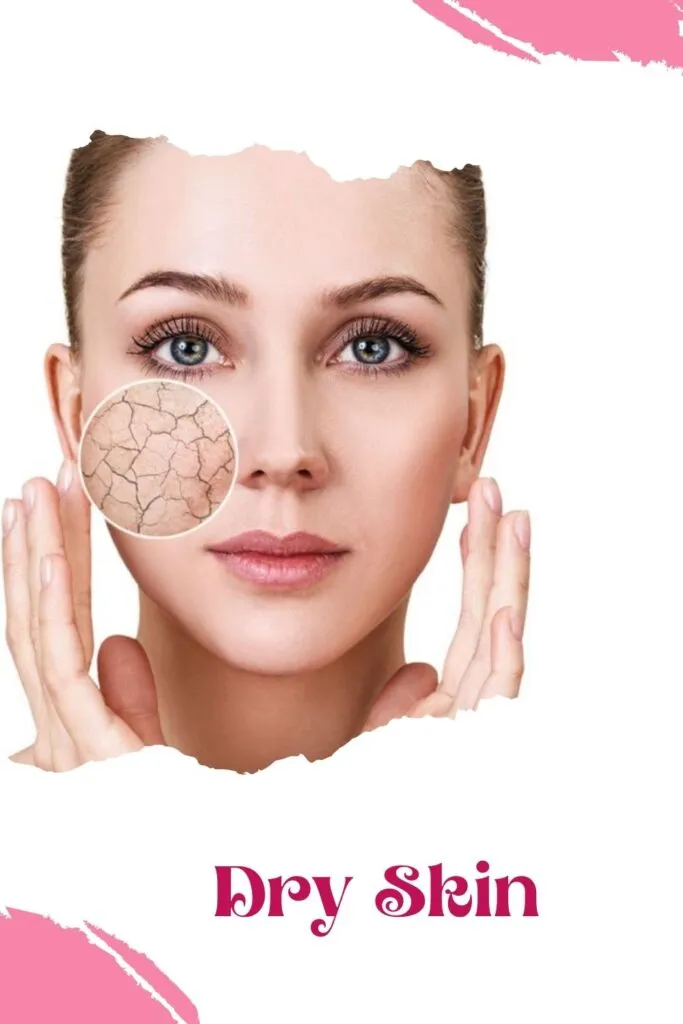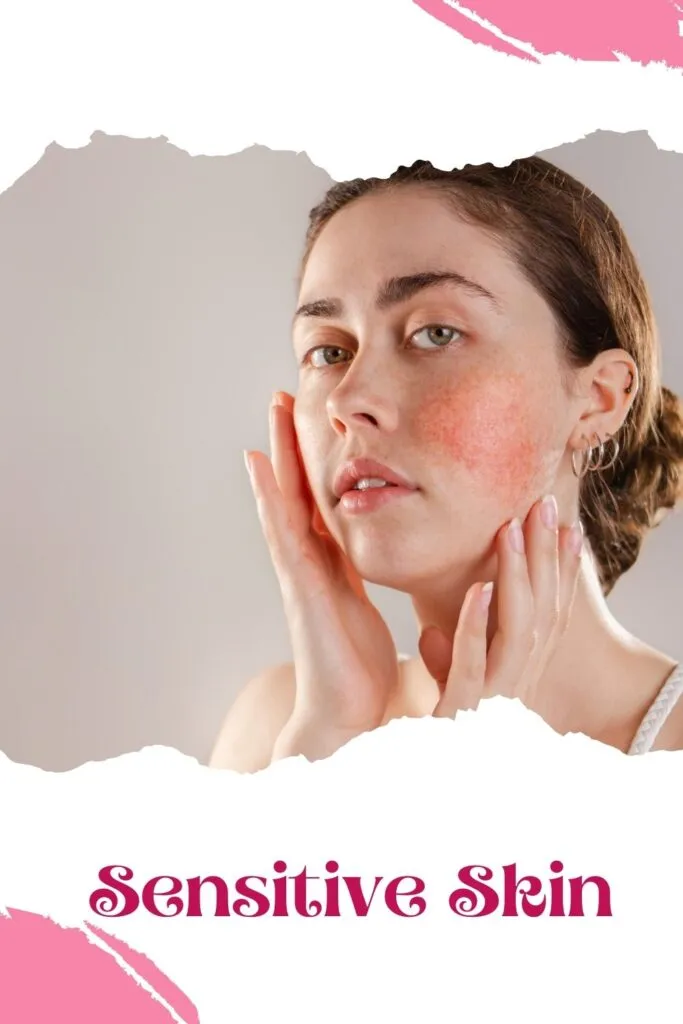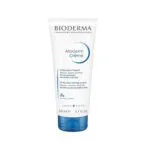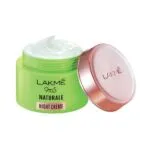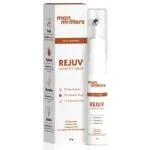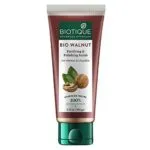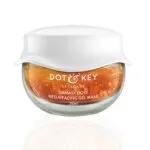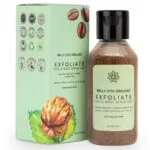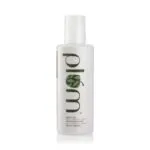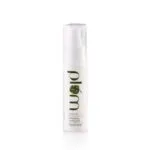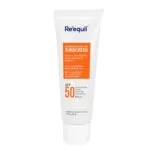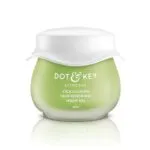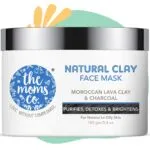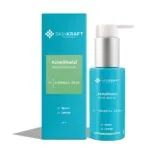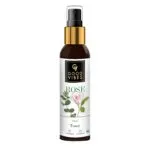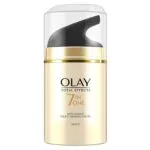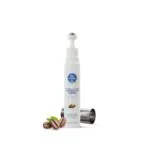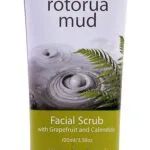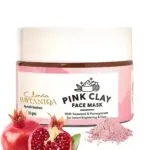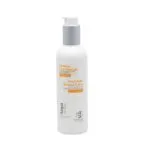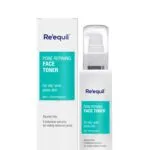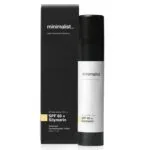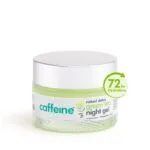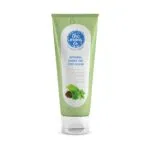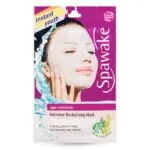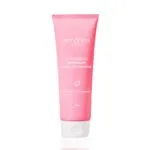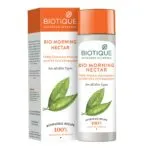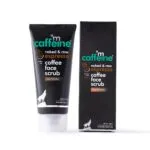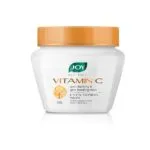Don’t know what to use and what not on your skin type? Don’t worry, as we provide you with a guide on identifying your skin type and the skincare routine for all skin types to be used. The first step in taking care of your skin involves figuring out your skin type.
What is the perfect skincare routine?
A perfect skincare routine involves using the right products and applying them in the correct order. It will depend upon your skin type, the ingredients used, and the time taken. A good rule is to apply the products in order of texture, from thin to thick, as the thin products cannot penetrate the thicker ones.
What are 5 basics of skincare?
The five basics of skincare involve:
1. Cleansing : You must begin by using the appropriate cleanser for your skin. For instance, go for a moisturizing face wash if you have dry skin and a gentle face wash in case of sensitive skin.
2. Exfoliating : It involves using a scrub to get rid of excess oil and dead skin cells to achieve smooth and healthy skin.
3. Toning : Toning is essential as a toner contains active ingredients that cleanse the skin, get rid of bacteria, and balance the pH levels.
4. Moisturizing : After cleansing, your skin loses a lot of moisture; thus, it is necessary to moisturize your face using a good cream.
5. SPF : Sunscreen is also essential and last step as it saves your skin from harmful UV rays that can lead to premature signs of aging, pigmentation, and sunburn. Dermatologists suggest choosing a sunscreen with 15 to 25+ SPF.
What are the 10 steps of skincare?
The ten skin care steps include:
1. Oil Cleansing- Start by gently cleansing your face with a cleanser to remove oil and dirt.
2. Foam cleansing- A follow-up on oil cleanser is a foaming cleanser to remove excess chemicals and dirt.
3. Exfoliate- The next step is Exfoliation which results in smooth skin.
4. Toner- Toners are gentle and add the first layer of hydration after Exfoliation.
5. Essence- Another step to add to skin hydration involves using essence.
6. Serum- Serums contain active ingredients and treat skin issues like dark spots.
7. Sheet mask- Sheet masks are used to hydrate your skin and create a barrier to protect it.
8. Under-eye cream- Eye creams contain active ingredients that target the sensitive under-eye area.
9. Moisturize- Moisturizers should be the last step after serums and Exfoliation as they create a thin oily layer that prevents water from evaporating.
10. Sunscreen- Whether or not you are heading out, sunscreen during the day is a must.
What age should you start a skincare routine?
Depending upon your skin type, an ideal age to begin a skincare routine is usually 24-28. However, it is also recommended for some teens to start their daily skin care routine at around 12 as the skin becomes chaotic at that age.
What is the right age to use a night cream?
Unless you have dry skin, you won’t have to start using a night cream till you reach your twenties. But, as soon as there is a skin problem, you must immediately remedy it and choose a night cream, depending upon your age and skin type.
Which age is best for a facial?
According to many professionals, the right time to take care of your skin through facials is around 14. This is because the skin begins to change during this time, and acne and blackheads bump out. However, it may be sooner or later for other teens.
How do you age your skin?
Several factors speed up the process of aging. These include; smoking, sun exposure, and the use of tanning beds. However, by having a healthy diet, protecting your skin from the sun, and cleansing your skin gently, you can reduce premature skin aging.
What makes a face look younger?
There are several ways to make your face look younger. These include; protecting your skin from the sun, eating a balanced diet, exercising regularly, using a hydrating mask, etc.
What are the early signs of aging?
Some of the early signs of aging include uneven skin tone, dry skin, fine lines and wrinkles, visible pores, and dull skin.
Therefore, go through our guide to discover whether you have dry, oily, sensitive, or combination skin.
1. Normal Skin
The term normal is used to refer to well-balanced skin. For example, although the chin, nose, and forehead might be oily, overall, the skin is neither oily nor dry.
How can you identify normal skin?
- Smooth texture– Normal skin texture is smooth, with no flakiness, breakouts, or tightness.
- Fine pores– People with normal skin have small pores that are often unnoticeable.
- No sensitivity– Since normal skin is evenly balanced, it is neither too oily nor too dry or sensitive.
- No blemishes– Normal skin is blemish-free and radiant in appearance.
- Few or no breakouts– People with normal skin are less likely to experience breakouts.
- Radiant complexion– People in this category have a glowy, vibrant look with well-rested, healthy skin.
Tips for normal skin
Even if you have normal skin, it does not mean that you can binge on high carbs. Instead, your skin needs to be taken care of. You don’t have to go for a complete skincare routine, but you can follow a healthy diet, a basic skincare routine, and stay hydrated.
2. What causes oily skin?
- Hormonal changes- Hormones play a huge in the development of oily skin. For instance, overactive adrenals, the glands that regulate stress hormones, can produce skin problems around the mid-face.
- Climate– Climate also affects our skin as people are more likely to have oily skin in a hot and humid climate.
- Genetics– If your parents have oily skin, then there are high chances that you might as well inherit the trait.
- Large pores– Large pores tend to produce more oil. Therefore, you must take care to blot areas of the face with large pores.
- Exfoliating too much/Using harsh soaps– You must use gentle cleansers are harsh soaps are known to trigger the production of oil in the skin.
How can you identify oily skin?
- Greasy appearance– Since oily skin produces more than enough oil, it tends to have a greasy appearance.
- Open/Big pores– Due to more oil production, dirt and dead skin cells are trapped in your skin, causing the pores to enlarge.
- Prone to breakouts– Oily skin clogs pores and causes increased acne breakouts.
- Blackheads, other blemishes, etc., are also signs of oily skin.
Tips for oily skin
In order to take care of your skin, you must follow the given skincare tips for acne-prone or oily skin.
- Stay hydrated
- Moisturize regularly
- Use non-comedogenic makeup products
- Wash your face twice a day
- Avoid constant touching of the face.
Recommended Post
3. What causes dry skin?
The reasons for dry skin are as follows:
- Genetics– You are more prone to dry skin if your parents or other family members have it.
- Season– Dry skin also depends upon the climate. For instance, you are more likely to develop dry skin in winters due to a lack of humidity.
- Long showers– Spending a lot of time under the shower can rip your skin off the necessary oil and make it dry.
- Age– With age, sebum production in your skin reduces, resulting in flaky skin.
Tips for dry skin
- Do not spend too much time under the shower.
- Moisturize your skin regularly, especially after a bath.
- Drink a lot of water
- Use sunscreen to prevent your skin from dehydration.
- Wear gloves while using household cleaning agents
4. What is combination skin?
Combination skin is the one that is oily and dry at the same time. Usually, the T-zone, i.e., nose, forehead, and chin, are oily, while the other areas are sry.
How can you identify combination skin?
- Oily T-zone and dry cheeks– Combination skin is a mix of oily skin on the nose, forehead, and cheeks while dry skin on the other areas.
- Breakouts only on the forehead, chin, and nose- Since the T-zone is oily; therefore, breakouts usually occur on the chin, nose, and forehead.
- Sensitive cheeks– With cheeks being dry, they become sensitive. Therefore, you must make use of gentle products on the cheeks.
- Large, open pores– As combination skin is less elastic, it has large, open pores.
- Shiny skin– Combination skin tends to be shiny on the T-zone.
What causes combination skin?
- Genetics– You are more likely to develop combination skin if your parents or other family members have it.
- Products– Harsh products can change skin type by causing excess sebum production in the T-zone.
- Climate– Your skin might change, depending upon the climate. For instance, you might develop oily skin during Summers and dry skin during winter months.
Tips for combination skin
- Make use of a gentle cleanser as harsh products can clog your pores.
- Use an oil-free sunscreen
- Make use of separate skincare products for the T-zone and the rest of your face.
- Exfoliate gently and only sometimes
5. How can you identify sensitive skin?
- Skin feels itchy and tight– Sensitive skin lacks moisture and thus, feels tight and itchy.
- Parts of your body have uneven texture– Uneven texture is usually found on people with sensitive skin. This results from an excess of dead skin cells.
- Becomes oily in summers– With increased humidity, your sensitive skin can also become oily and prone to acne and breakouts.
- Gets dry in winters– The dry air in winter can cause your skin to become dry by losing moisture.
- Reacts to skincare– You must use gentle skincare products, as sensitive skin usually reacts to such products.
- Becomes red after a hot water bath– Lukewarm water is best for sensitive skin as hot water can make your skin appear red.
- Feels itchy while wearing tight clothes– As the tight-fitting fabrics rub against your skin, your sensitive skin can feel itchy.
- Flushes easily after eating spicy food– Gustatory sweating can lead to flushing your sensitive skin after having spicy food.
Tips for sensitive skin
- Always test the product on your hand first then on your face to prevent any reaction.
- Do not believe the “hypoallergenic” label, as it may still not suit you.
- Do not apply a lot of products to your skin during your skincare routine.
- Avoid long, hot showers as they can make your skin red and irritated.
Skincare routine for all skin types
Dry Skin
When it comes to a dry skincare routine, you must follow the six steps below.
- Cleanser- Begin by cleansing with a hydrating cleanser that does not disrupt the outer layer of skin.
Price : 339₹
Rating : 5 Star
- Toner– Next, use an alcohol-free toner to restore the skin’s pH level.
Price : 245₹
Rating : 4.5 Star
- Moisturizer– To prevent dehydration, make use of a nourishing non-comedogenic moisturizer.
Price : 599₹
Rating : 4.5 Star
- Sunscreen– Next step involves using sunscreen to protect the skin from harmful UV rays.
Price : 630₹
Rating : 4 Star
- Night cream– Use a night cream to give your skin extra hydration.
Price : 319₹
Rating : 4 Star
- Eye cream– An eye cream can help you with anything from dry skin and fine lines to dark circles and under-eye bags.
Price: 449₹
Rating : 3.5 Star
Weekly Additions
- Scrub– Exfoliation is also important for dry or flaky skin. But, because the process takes away natural oils, you can do it once a week.
Price : 92₹
Rating : 4 Star
- Mask– In addition to moisturizers and face oils, hydrating masks are a great way to retain skin moisture.
Price :
Rating :
Oily Skin
- Cleanser– If you have oily skin, you must cleanse it twice daily. Cleansing your skin in the morning and night is equally crucial as during the night, your skin sheds cells and produces oils.
Price : 747₹
Rating : 4 Star
- Scrub– Oily skincare routine requires extra care than just cleansing. Therefore, scrub your face to get rid of dead skin cells.
Price : 249₹
Rating : 4 Stars
- Toner– Once free from oil and dirt, you must treat your skin with an exfoliating toner.
Price : 331₹
Rating : 4 Star
- Moisturizer– Even if you have oily skin, moisturizing is quite important. But, look for a moisturizer that is lightweight and oil-free.
Price : 399₹
Rating : 4 Star
- Sunscreen– When going outdoors, make sure to wear sunscreen that is at least SPF 30.
Price : 460₹
Rating : 4 Star
- Night cream– Lastly, for night skin care routine, you must use a good night cream that moisturizes your oily skin without leaving a greasy finish.
Price : 595₹
Rating : 4.5 Star
Weekly Additions
- Mask– You can go for a face mask weekly as it helps to treat and decrease oily skin by cleansing the oils from the surface.
Price : 425₹
Rating : 4 Star
Combination Skin
- Cleanser– Firstly, cleanse your skin of any buildup that develops overnight.
Price : 329₹
Rating : 4 Star
- Toner– Next, go for a toner that will remove all the oil left on your skin while balancing the pH levels.
Price : 145₹
Rating : 4 Star
- Moisturizer– For a combination skincare routine, you will have to use two moisturizers; the creamy formula for dry areas and a lightweight cream for oily areas.
Price : 268₹
Rating : 4 Star
- Night Cream– For combination skins, look for a night cream with Vitamin C, Retinol, Ceramides, and other ingredients.
Price : 659₹
Rating : 4 Star
- Eye Cream– Several brands offer great lightweight under-eye creams, which can be used to reduce wrinkles and puffiness.
Price : 355₹
Rating : 4 Star
Weekly Addition
- Scrub– You must scrub your face once a week as they help remove the dead skin cells and keep the pores clear.
Price : 1,450₹
Rating : 4 Star
- Mask– You can also multi-mask once a week, i.e., wearing different masks to different face areas.
Price : 364₹
Rating : 4 Star
Sensitive Skin
Given below are the steps for skincare for sensitive skin.
- Cleanser– Begin using a gentle cleanser that will lift your skin’s impurities and hydrate your skin.
Price : 487₹
Rating : 4 Star
- Toner– With sensitive skincare, you must go for a gentle, moisturizing toner with hyaluronic acid and glycerine ingredients.
Price : 350₹
Rating : 4 Star
- Moisturizer– Make use of a good moisturizer that will retain your skin’s moisture along with protecting it from the harsh climate and chemicals.
Price : 358₹
Rating : 4.5 Star
- Sunscreen– Sunscreens with 30 or more SPF are suitable for sensitive skin to protect it from UV rays.
Price : 569₹
Rating : 4.5 Star
- Night Gel– Lastly, make use of night gel as the gel moisturizers are quickly absorbed, are lightweight, and make your skin fresh.
Price : 479₹
Rating : 4 Star
Weekly Addition
- Scrub– Makeup, oil, and dirt can aggravate your sensitive skin and lead to acne and breakouts. Thus, you must exfoliate weekly to prevent breakouts.
Price : 275₹
Rating : 4 Star
- Mask– Several face masks are available that will not stress out your sensitive skin. Look for the following ingredients in your mask; chamomile, aloe vera, colloidal oatmeal, green tea, among others.
Price : 141₹
Rating : 3.5 Star
Normal Skin
- Cleanser– Cleansing your skin of all the oil and dirt is the first step of a normal skincare routine.
Price : 395₹
Rating : 5 Star
- Toner– The next step involves using a toner to remove excess oil that may be stuck to your face.
Price : 187₹
Rating : 4 Star
- Moisturizer– Every skin type needs to be moisturized. Therefore, make use of good, lightweight cream in the next step.
Price : 488₹
Rating : 4 Star
- Sunscreen– Hydrate your skin with a lightweight SPF 40 sunscreen to protect it from harmful UV rays.
Price : 131₹
Rating : 4 Star
Weekly Addition
- Scrub– To get rid of the dead skin cells and expose healthy skin, exfoliate your skin weekly.
Price : 199₹
Rating : 4 Star
- Mask– Using a face mask in a week can be a great way to nourish your skin and trap moisture.
Price : 215₹
Rating : 3.5 Star
Conclusion
Our skin’s needs may change over time. Hence, it is crucial to take appropriate steps to identify the needs and make them look healthy. In addition, you must know your skin type to determine the products to be used and address your skin concerns.




